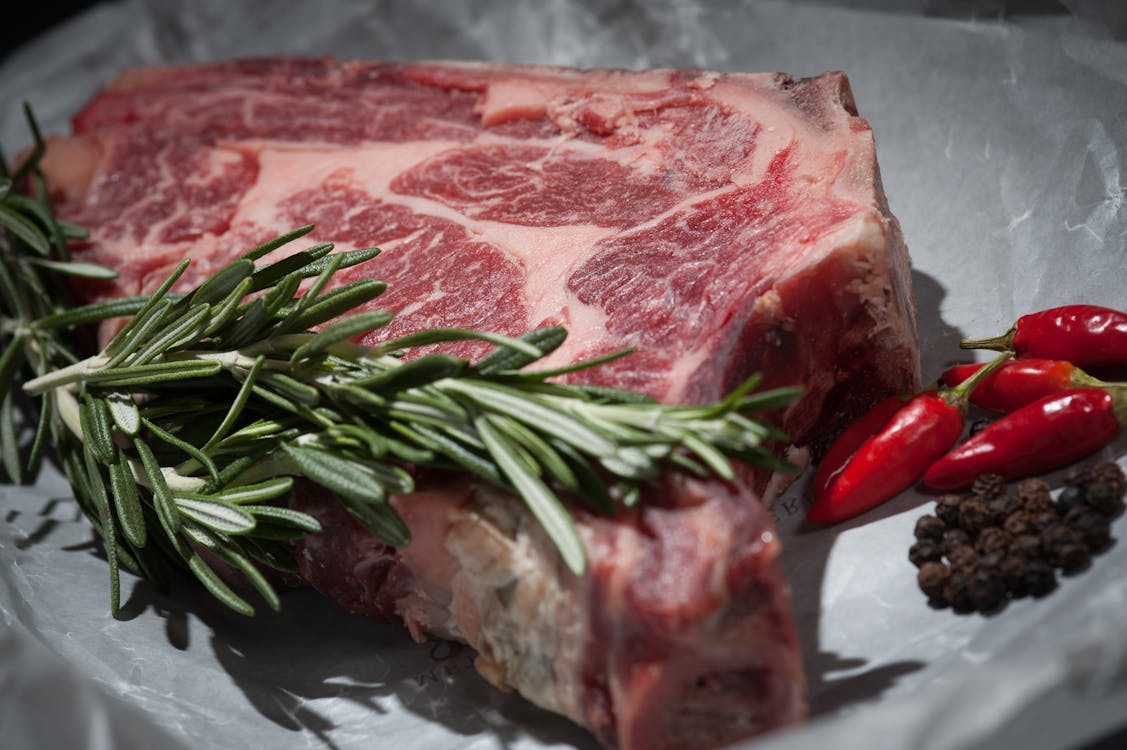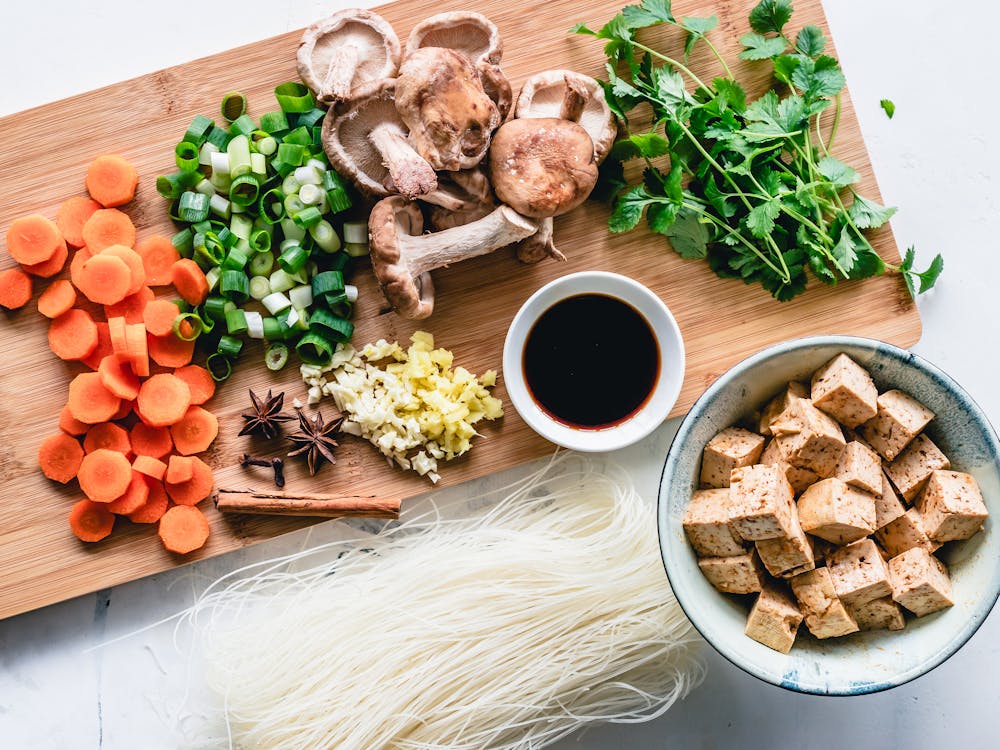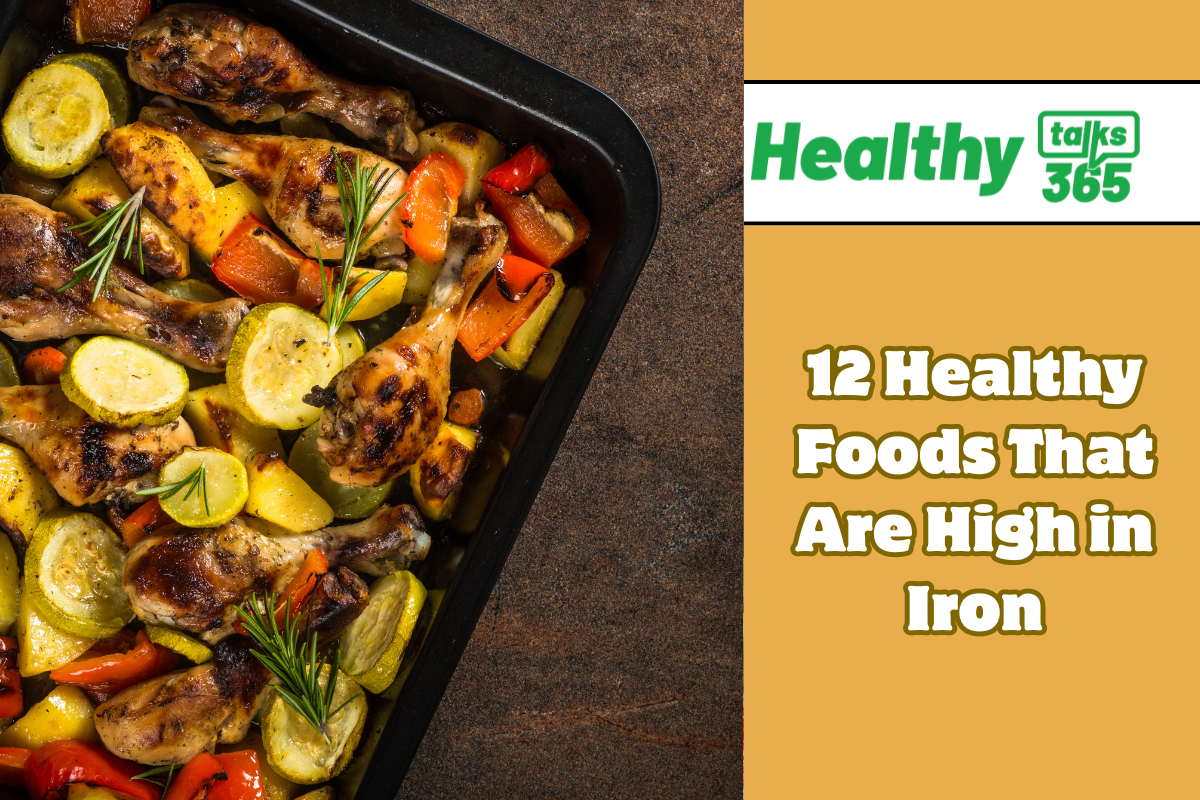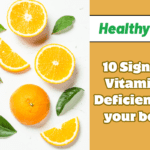12 Healthy Foods That Are High in Iron
Spinach
Spinach is a leafy green vegetable that is packed with numerous nutrients, including iron. One of the most notable benefits of spinach is its high iron content, which is essential for producing hemoglobin, the protein in red blood cells that carries oxygen throughout the body. Spinach provides a good amount of non-heme iron, which is the type of iron found in plant foods. While non-heme iron is not absorbed as efficiently as heme iron (found in animal products), consuming spinach with vitamin C-rich foods like citrus fruits, bell peppers, and tomatoes can enhance its absorption. Additionally, spinach is also rich in antioxidants called carotenoids, which may reduce your risk of cancer, decrease inflammation, and protect your eyes from disease, further solidifying its status as a nutritional powerhouse.
Read Also:
11 Best Ways to Improve Your Digestion
Red meat
Red meat, including beef, lamb, and pork, is a well-known source of heme iron, which is the form of iron most easily absorbed by the body. Heme iron from red meat is particularly effective at increasing and maintaining healthy iron levels, making it a valuable dietary component for preventing and treating iron-deficiency anemia. A serving of red meat can provide a significant portion of the daily recommended iron intake, especially for individuals with higher iron needs such as pregnant women and athletes.

Lentils
Lentils are a nutrient-dense legume that is an excellent source of plant-based iron, providing a significant amount of non-heme iron per serving. They are especially valuable for vegetarians, vegans, and individuals looking to reduce their meat intake while still meeting their iron needs. In addition to iron, lentils are rich in protein, making them a great meat alternative, and are packed with fiber, which supports digestive health and helps maintain stable blood sugar levels. Lentils also contain important vitamins and minerals, such as folate, magnesium, and potassium, which contribute to heart health, nerve function, and energy production.
Liver
Liver, particularly from beef, chicken, and pork, is one of the most nutrient-dense foods available, offering a substantial amount of heme iron. It is an exceptional source of iron, making it an ideal choice for individuals with iron deficiency or those needing to boost their iron levels quickly. Besides iron, liver is rich in high-quality protein, which plays a vital role in building and maintaining healthy tissue, including muscle, skin, and bone, and can also help with weight management by promoting feelings of fullness and satisfaction. Additionally, liver is packed with essential vitamins such as vitamin A, which supports vision and immune function, and B vitamins like B12 and folate, which are crucial for red blood cell formation and energy metabolism.
Tofu
Tofu, made from soybeans, is an excellent source of non-heme iron, making it a valuable food for vegetarians, vegans, and anyone looking to increase their plant-based iron intake. Tofu is highly versatile and can be used in a wide range of dishes, from stir-fries and soups to salads and smoothies. In addition to iron, tofu is rich in high-quality protein, providing all essential amino acids needed for muscle repair and growth. It also contains other important nutrients such as calcium, magnesium, and selenium, which support bone health, enzyme function, and antioxidant defense.

Read Also:
Pregnancy: Signs, Symptoms, Overview, Health Tips You Should Know
Shellfish
Shellfish, such as clams, oysters, and mussels, are among the best dietary sources of heme iron. These seafood delicacies are not only delicious but also pack a significant amount of iron that is highly bioavailable, meaning it is easily absorbed by the body. For example, a serving of clams can provide more than 100% of the recommended daily iron intake. Besides iron, shellfish are rich in high-quality protein, essential for muscle repair and growth, and are low in fat, making them a heart-healthy option. They also contain other important nutrients, including vitamin B12, zinc, copper, and omega-3 fatty acids.
Quinoa
Quinoa is a highly nutritious grain that is an excellent source of non-heme iron. Unlike many other plant-based foods, quinoa is a complete protein, meaning it contains all nine essential amino acids required by the body for tissue growth and repair. This makes it an especially valuable food for vegetarians and vegans. Quinoa is also rich in fiber, which aids in digestion and helps maintain stable blood sugar levels. In addition to iron and protein, quinoa provides important vitamins and minerals, including magnesium, phosphorus, manganese, and folate, which support bone health, energy production, and cellular function.
Pumpkin seeds
Pumpkin seeds, also known as pepitas, are a nutrient-dense snack that provides a good source of non-heme iron. These small seeds pack a punch when it comes to iron content, making them an excellent addition to a diet aimed at preventing or treating iron deficiency. Pumpkin seeds are also rich in other important nutrients, including magnesium, zinc, and omega-3 fatty acids, as well as antioxidants, healthy fats, and minerals, which have been linked to several potential health benefits, including enhanced bone health, improved sexual wellbeing, and a stronger immune system. Magnesium plays a crucial role in over 300 enzymatic reactions in the body, including those involved in energy production and muscle function.
Dark chocolate
Dark chocolate, particularly varieties with a high cocoa content (70% or more), is a surprising yet delightful source of non-heme iron. This treat provides a significant amount of iron per serving, making it an enjoyable way to boost your iron levels. In addition to iron, dark chocolate is rich in antioxidants, particularly flavonoids, which have been shown to support heart health by improving blood flow and reducing blood pressure. It also contains magnesium, copper, and manganese, which are important for various bodily functions, including enzyme activity and bone health.
Chickpeas
Chickpeas, also known as garbanzo beans, are a highly nutritious legume and an excellent source of non-heme iron. A single cup of cooked chickpeas provides approximately 4.7 mg of iron, which is around 26% of the daily recommended intake for men and 12% for women. Chickpeas are also rich in protein, making them a great plant-based protein source for vegetarians and vegans. They contain essential amino acids necessary for muscle growth and repair.
Turkey
Turkey is a nutritious poultry option that is rich in heme iron, which is easily absorbed by the body. A 3.5-ounce serving of turkey breast provides about 1.4 mg of iron, while the same serving of dark turkey meat provides approximately 2.3 mg of iron. This makes turkey a valuable food for individuals looking to boost their iron intake, particularly for those who may be at risk of iron deficiency, such as pregnant women and athletes.
Read Also:
Soybeans
Soybeans are a powerhouse of nutrition and an excellent source of non-heme iron. A cup of cooked soybeans provides about 8.8 mg of iron, which is almost half of the daily recommended intake for men and around 22% for women. This makes soybeans one of the richest plant-based sources of iron, making them especially valuable for vegetarians and vegans. In addition to iron, soybeans are rich in high-quality protein, containing all essential amino acids required by the body for muscle growth and repair.




